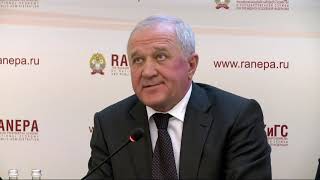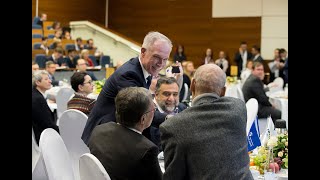Saturday, 17 January, 2026г.
















Где искать: по сайтам Запорожской области, статьи, видео ролики
пример: покупка автомобиля в Запорожье
The Gaidar Forum 2019. CUSTOMS ADMINISTRATION IN RUSSIA: WHAT SHOULD BE THE MODERN PROCEDURES?
Panel Discussion
On January 1, 2018, the EAEU Customs Code went into effect. It specifies the new dimensions of customs administration for member countries of the Union. Therefore, the policy documents of the Government of the Russian Federation and the Federal Customs Service of the Russian Federation aimed at enhancing the efficiency of customs administration show that their implementation will gradually contribute to improvements, primarily due to introducing information technologies. At the same time, none of the policy documents involve changes to the underlying technologies and business processes for implementing customs administration, which imposes limits on the changes that need to be made to overcome Russia’s backlog in organizing customs procedures, improving the business climate, further developing foreign trade and transit, which is one of the objectives set out in the Executive Order of the President of the Russian Federation dated 07.05.2018 No. 204..
Issues for Discussion:
What are the reasons for Russia’s low position in international ratings of customs administration efficiency? What priority measures should be taken to improve the situation?
Customs administration as an instrument for promoting external trade in goods: is it all possible in Russia and EAEU?
How do we optimize customs and border formalities in order to reduce the cost of business by increasing the efficiency and effectiveness of control?
Do modern digital technologies make it possible to levy customs duties after releasing goods into circulation as internal indirect taxes?
How is introducing unified customs and tax administration in Russia progressing?
Will the labelling of goods help to “whitewash” the import?
What are the risks and opportunities for developing electronic commerce in Russia?
How do we make the EAEU territory attractive for transporting goods?
Moderator:
Sergey Sinelnikov-Murylev, Rector, Russian Foreign Trade Academy
Participants:
Galina Balandina, Senior Research Fellow, Laboratory for Macroeconomic research, RANEPA
Vladimir Bulavin, Head of the Federal Customs Service of Russia
Dmitry Egorov, Deputy Head of the Federal Tax Service of Russia
Timur Maximov, Deputy Minister of Economic Development of the Russian Federation
Vitaliy Survillo, Vice President, Business Russia All Russia Public Organization
Ilya Trunin , Deputy Minister of Finance of the Russian Federation
Похожие видео
Мой аккаунт


 У вашего броузера проблема в совместимости с HTML5
У вашего броузера проблема в совместимости с HTML5


